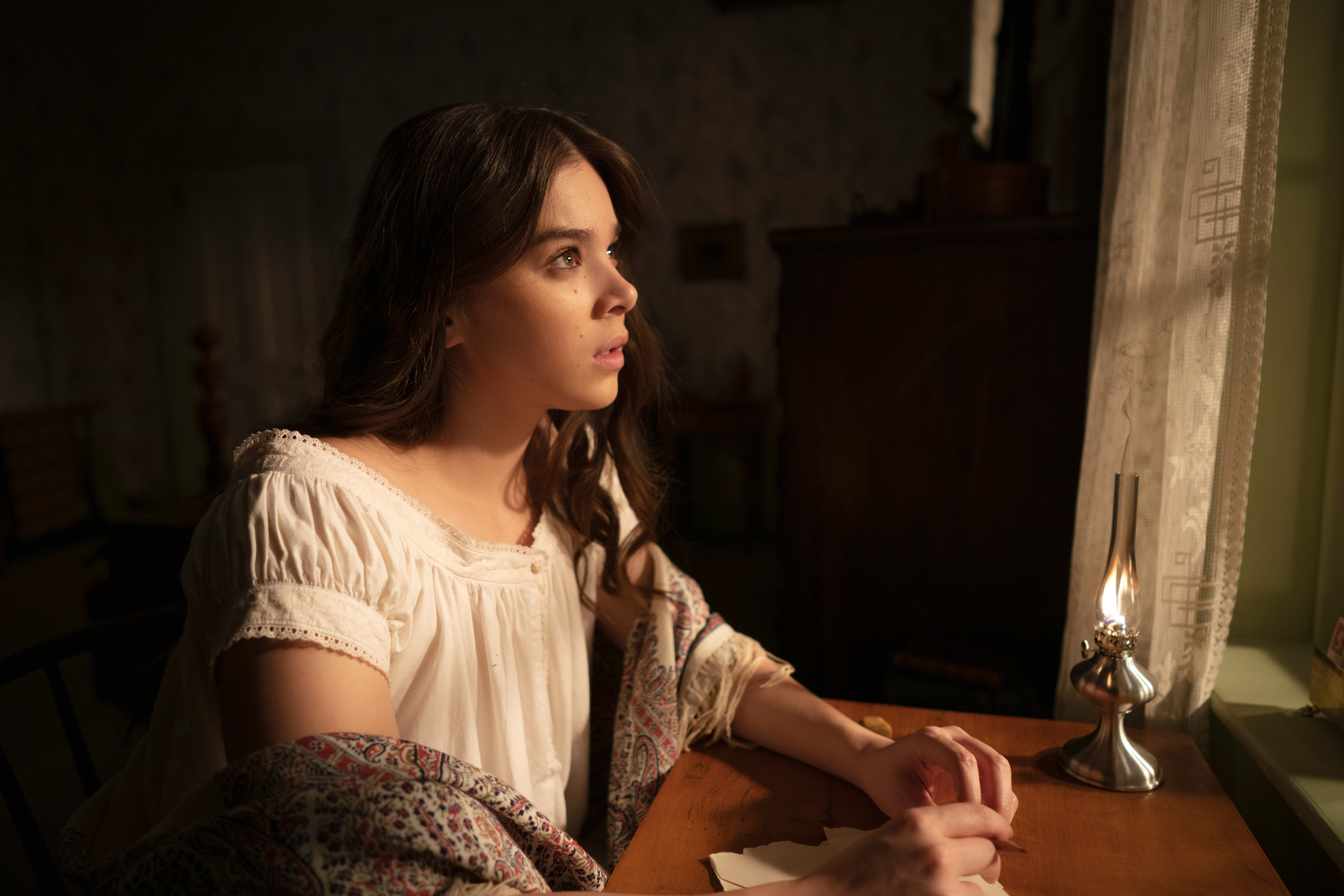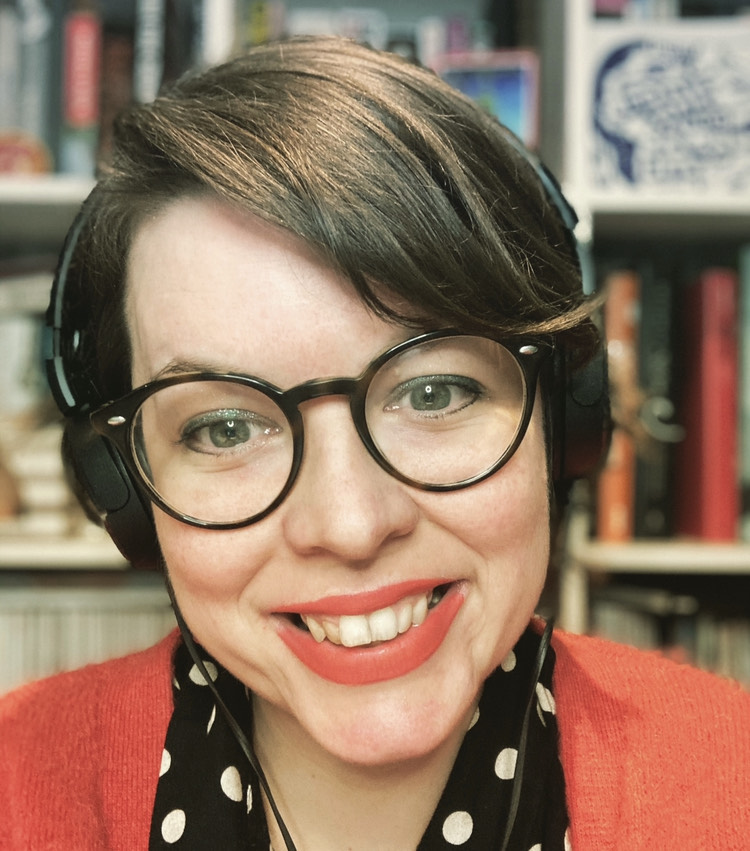First thoughts on Apple TV Plus’ 'Dickinson' Season 2
Building on a strong foundation, the Hailee Steinfeld-starring series is funnier, darker and more self-assured.

The latest updates, reviews and unmissable series to watch and more!
You are now subscribed
Your newsletter sign-up was successful
Want to add more newsletters?

ONCE A WEEK
What to Watch
Get all the latest TV news and movie reviews, streaming recommendations and exclusive interviews sent directly to your inbox each week in a newsletter put together by our experts just for you.

ONCE A WEEK
What to Watch Soapbox
Sign up to our new soap newsletter to get all the latest news, spoilers and gossip from the biggest US soaps sent straight to your inbox… so you never miss a moment of the drama!
Television continues to demonstrate there is no one correct way to dramatize a historical event or person. Juggling accuracy and dramatic stakes mean some liberties and creative license is taken to add to the entertainment. Recently, The Crown faced a barrage of criticism from the UK government and royal sources unhappy with the lack of disclaimer to emphasize the fictional framing. Netflix has so far refused to budge on its stance and stars including Josh O’Connor and Emma Corrin have sided with the streamer. Depicting the recent past throws up controversial curveballs if the people portrayed (or their nearest and dearest) are still alive and object to the creative vision. In the case of Apple TV+’s Dickinson, creator Alena Smith does not have to contend with this issue in the genre-bending "funhouse mirror" take on 19th-century literary icon Emily Dickinson. As with the recent Elle Fanning fronted The Great, the tone is specifically unconcerned with portraying a clinical version of the real people they are playing. Instead, the universal themes pull focus in the anti-historical sub-genre.
Starring Hailee Steinfeld in the titular role, this is the first Apple TV+ series to release its second season — Servant is hot on its heels. Far from lacking big-name buzz, a handful of shows have made it onto 2020 “Best of” lists (see, Ted Lasso, Little America, and Mythic Quest), but this platform still feels like an outlier overshadowed by the likes of Netflix, Hulu, Prime, and even Disney+. In October, Dickinson won a Peabody for its first season, which saw Emily go up against the sexist trappings of mid-1800s life in a bid to get her poetry published. Best friend and love interest Sue Gilbert (Ella Hunt) provides the introductory voiceover in the opening episode revealing that in her lifetime, Emily was an unknown talent. It wasn’t until her death that an immense treasure trove of poems was discovered and she became one of the most influential poets in American history.
What follows is a comedy-drama capturing family life in the Dickinson home, the ruptures forming that will lead to the American Civil War and teenage antics reflecting Gossip Girl worthy parties — with added corsets. At times, the switch from the surreal to the sincere leads to tonal whiplash, but Smith’s alternative exploration of Emily as a person and a writer is an ambitious debut season venture that only scratched the surface of the Dickinson legend. Building on this strong foundation, the second outing is more self-assured as Smith digs further into Emily and what it means to become a somebody. The signature spirit of Dickinson’s poetry is baked into every scene, lending itself to Steinfeld’s ability to serve fearless and vulnerable in equal amounts.
If you haven’t yet tapped into the charms of this series, now is your time to catch up over the holidays before Season 2 lands with the first three episodes on January 8 — from this point, we will be discussing events in the first season. Knowing that Emily is not going to have her big break during her life does not diminish the desire as a viewer to see her recognized for her craft. Quarreling with her father — played by the always excellent Toby Huss — about the role women should play (i.e. not writing poetry for publication) was one obstacle the oldest Dickinson daughter had to surmount. Arriving home after months away, Edward promises Emily he won’t seek re-election, instead choosing his family over political folly. “I am a poet. I am a poet. And I am not going to die,” Emily intones in the final moments to her father. “I am going to write thousands of poems right here in this room. The greatest poems ever written. By Emily Dickinson. And there is nothing you can do to stop me.” Rather than put up a fight, for the first time it is like Edward finally understands his daughter’s drive.
A rallying cry in the face of despair after her beloved Sue has married another Dickinson and another man she has fallen for has succumbed to tuberculosis. In one of the more psychedelic recurring interactions, Emily hangs out with Death in his ghost horse-drawn carriage — played by rapper Wiz Khalifa — but now she is rejecting this flirtation. Events in Season 1 were based on letters and other documents covering Emily’s youth along with her siblings Austin (Adrian Enscoe) and the Lavinia (Anna Baryshnikov), Sue, and a whole gaggle of frenemies. Taking liberties with contemporary language and a soundtrack featuring Billie Eilish and Lizzo, the story marries research and reverence for Emily’s work with humor and themes anchored in the 21st century. It shouldn’t work — and occasionally it doesn’t — but in Season 2, Smith has further lifted the veil between the past and present. The mix of comedy, romance, drama, and even the supernatural is a tricky tightrope to walk but as Emily becomes more unknown in the documents and letters left behind, her poems are an insight into the brilliant young woman who is often framed by isolation and eccentricity. Yes, her bedroom is still her sanctuary but the relationships with her siblings, Sue, and other Amherst residents paint a broader picture.
Words written by Emily Dickinson are infused (quite literally) in the dialogue and the texture, floating on the screen when inspiration struck. This technique continues further emphasizing this mix of authenticity with the unconventional aspects of this coming-of-age story. Obstacles preventing Emily and Sue from acting on their shared desire still persist, which sees Sue taking on a new "influencer" role as the wife of Austin Dickinson in their opulent new home called the Evergreens (this is now the site of the Emily Dickinson Museum). One side effect is less time spent between Sue and Emily, which is disappointing but necessary for building tension. And while Emily is clearly the star, the focus on Austin and Lavinia — both are searching for their place in this changing world — provides some of the highlights of the season. Baryshnikov is the scene-stealing MVP as she explores her sexual prowess while dealing with bonehead Amherst dudes. Not only does the actress look like on-screen mother Jane Krakowski, but they share a comedic sensibility.
The arrival of a daily newspaper (and its attractive editor-in-chief) provides more fuel, which sees the residents of this Northern town become embroiled with the division that will lead to the Civil War. Rather than the elephant in the room, the fight to abolish slavery becomes a central storyline — while reflecting on the current fractured political landscape. Print media is also the catalyst for Emily to contemplate the meaning of greatness as different players pull her in various directions. As with the first season — which saw John Mulaney play Henry David Thoreau and Zosia Mamet as Louisa May Alcott — there are some fun guest stars playing literary figures.
The latest updates, reviews and unmissable series to watch and more!
Dickinson’s shifting tone benefits from a tight 30-minute runtime, and it never feels like an episode outstays its welcome. If you are a fan of the first season then you will be all-in on this follow-up, which continues to play into certain costume drama conventions while subverting the genre in this celebration of the twenty-something poet.
Dickinson Season 2 will premiere on Apple TV+ on Friday, January 8.
Emma Fraser spends most of her time writing about TV, fashion, and costume design; Dana Scully is the reason she loves a pantsuit. Words can also be found at Vulture, Elle, Primetimer, Collider, Little White Lies, Observer, and Girls on Tops. Emma has a Master’s in Film and Television, started a (defunct) blog that mainly focused on Mad Men in 2010, and has been getting paid to write about TV since 2015. It goes back way further as she got her big start making observations in her diary about My So-Called Life’s Angela Chase (and her style) at 14.


